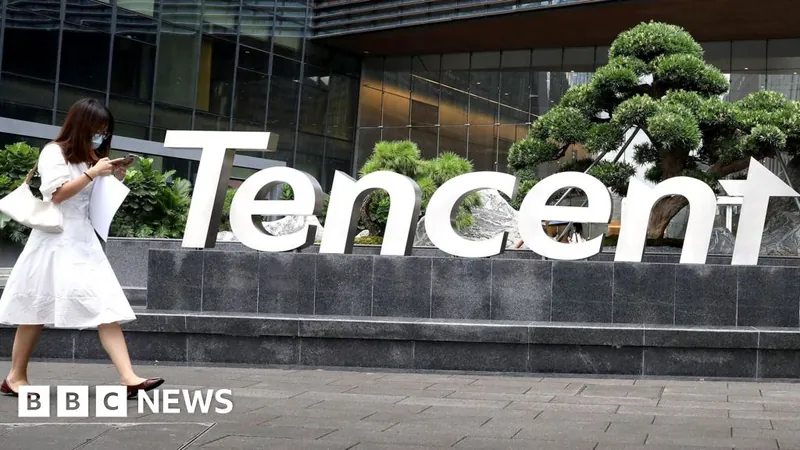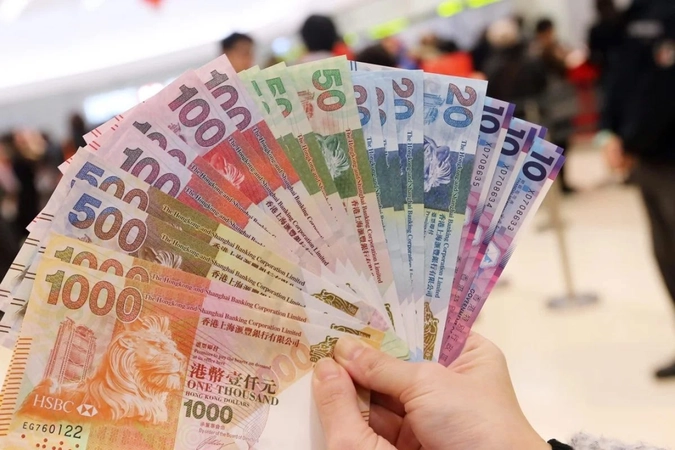
Major US Designation: Tencent Named as Chinese Military Company – What This Means for Global Markets!
2025-01-07
Author: Lok
Introduction
In a significant move, the United States has added several prominent Chinese technology firms, including the gaming and social media titan Tencent and renowned battery manufacturer CATL, to its controversial list of companies believed to be collaborating with China's military. This designation raises alarms for American businesses and organizations about potential risks linked to dealings with these Chinese entities.
Immediate Implications and Reactions
While being placed on this list, officially referred to as the Section 1260H list, doesn't result in an immediate ban, it could lay the groundwork for future sanctions imposed by the US Treasury Department, increasing scrutiny around these firms. Tencent, best known for its popular messaging app WeChat, swiftly denied any ties to military functions, labeling the designation as 'clearly a mistake.' A company spokesperson emphasized, “We are not a military company or supplier,” asserting that the listing holds no direct impact on their business operations.
Furthermore, CATL also rejected the military designation, insisting that it is not engaged in activities linked to defense sectors. The reaction from Beijing was swift and critical, with officials decrying the decision as 'unreasonable suppression of Chinese companies,' highlighting a growing trend of geopolitical tensions and trade frictions.
Pentagon's Annual Review and Broader Context
The Pentagon's annual review now includes 134 firms on the military list, which signals Washington's strategy aimed at counterbalancing what it perceives as China's increasing military establishment through technology collaborations with domestic companies, universities, and research programs.
This latest development arrives amid the backdrop of rising US-China tensions, as noted by political analysts. American automaker Ford recently announced a $2 billion investment for a new battery plant located in Michigan, linking its plans to technology licensing from none other than CATL. Such investments further complicate the narrative and demonstrate the intricate relationship between American enterprises and these designated firms.
Market Impact and Legal Challenges
The designation of Tencent and CATL has sent their stock values plummeting, with Tencent shares recording a 7% decrease and CATL down by about 4% in Hong Kong trading following the announcement.
In an intriguing twist, this situation unfolds as President-elect Donald Trump, known for his tough stance on China, is set to return to the White House this month, potentially ushering in new policy alterations impacting the diplomatic and economic landscape between the two superpowers.
Notably, legal challenges have emerged against the Pentagon from companies like DJI and Hesai Technologies, which are also included on this list, as they contend that their designation is unwarranted. Their cases remain ongoing, highlighting the contentious nature of US-China relations, especially within the realm of technology and military affiliations.
Conclusion
As the world watches closely, the implications of this designation for both Tencent and CATL, as well as broader US-China relations, will be pivotal to monitor in the coming months as geopolitical and economic dynamics continue to shift. Will this lead to a further cooling of relations, or will cooler heads prevail? Stay tuned for more developments!



 Brasil (PT)
Brasil (PT)
 Canada (EN)
Canada (EN)
 Chile (ES)
Chile (ES)
 Česko (CS)
Česko (CS)
 대한민국 (KO)
대한민국 (KO)
 España (ES)
España (ES)
 France (FR)
France (FR)
 Hong Kong (EN)
Hong Kong (EN)
 Italia (IT)
Italia (IT)
 日本 (JA)
日本 (JA)
 Magyarország (HU)
Magyarország (HU)
 Norge (NO)
Norge (NO)
 Polska (PL)
Polska (PL)
 Schweiz (DE)
Schweiz (DE)
 Singapore (EN)
Singapore (EN)
 Sverige (SV)
Sverige (SV)
 Suomi (FI)
Suomi (FI)
 Türkiye (TR)
Türkiye (TR)
 الإمارات العربية المتحدة (AR)
الإمارات العربية المتحدة (AR)